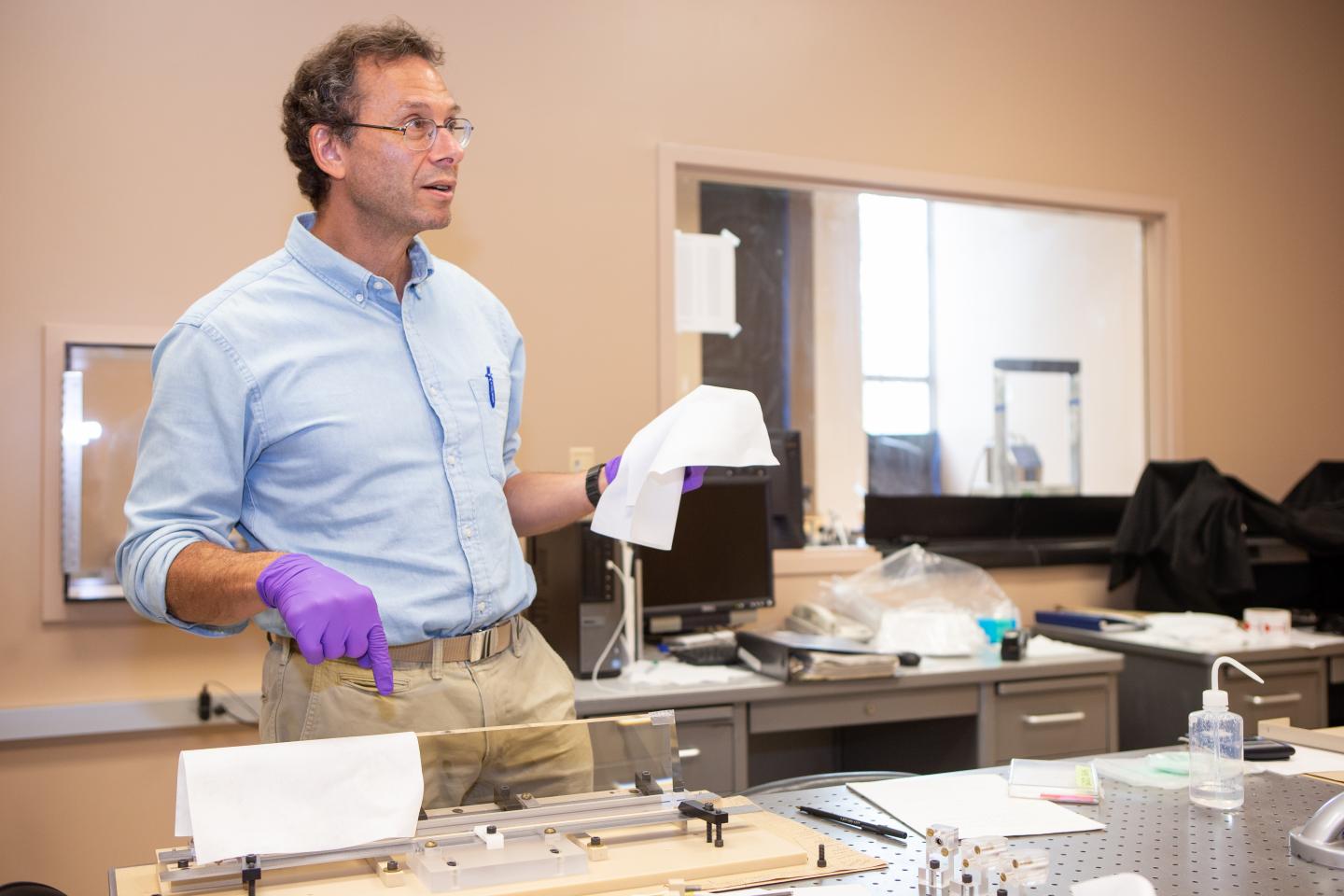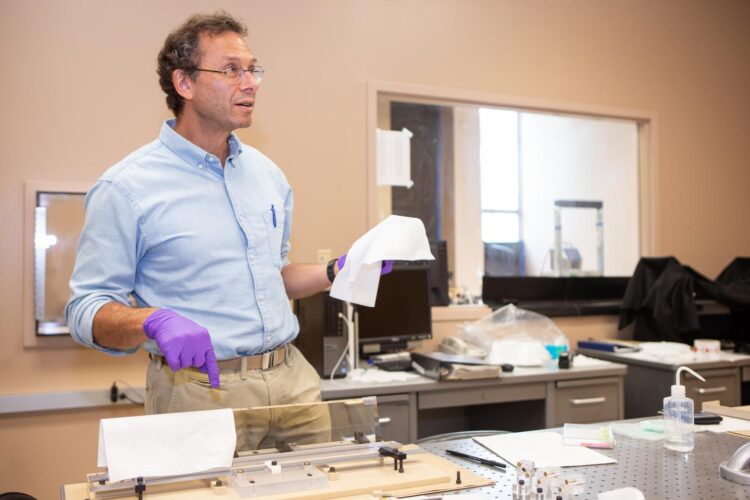Particle accelerator breaks world record for collisions, raising tantalizing possibilities for new physics

Credit: Andrew Higley/UC Creative
University of Cincinnati physicists celebrated a new world record as part of a research team working on a Japanese particle collider.
The SuperKEKB collider observed a record rate of particle collisions, referred to as luminosity, since launching in 2018. And this is only the beginning. The collider is expected to top that record 40 times over in coming years as researchers try to explain basic principles of the universe.
UC physicists Kay Kinoshita and Alan Schwartz are pursuing several topics including dark matter, which is believed to make up a majority of the matter in the universe but hasn’t been observed, at least directly.
“We hope our accelerator experiment can detect dark matter if it exists in a way that hasn’t been probed before,” Kinoshita said.
More collisions mean more opportunity to explore puzzles of particle physics that could help explain fundamental forces in the universe: like why matter prevails over antimatter. The accelerator fires positrons and electrons at each other around a 3-kilometer ring. When they collide, they often create new matter.
“We observe dark matter indirectly from astronomical observations. The question is what is it?” Kinoshita said. “This experiment is looking in new corners of possibility that have opened up.”
Particle physicists are especially excited about SuperKEKB because of its potential for observing more unusual phenomena.
Schwartz and his students designed and built one of the particle detectors at the collider. They used precision-crafted bars of optical-grade quartz that they assembled on site to identify new particles created by the collisions.
“This milestone represents a significant advance in accelerator design,” Schwartz said. “The accelerator uses the so-called ‘nano-beams’ approach, in which the beams are squeezed in the vertical direction to become very thin.”
Schwartz said this greatly increases the likelihood of electrons colliding with positrons traveling at each other at nearly the speed of light.
Schwartz said SuperKEKB will be flattening the twin beams even more to just 60 nanometers, or less than 1% the diameter of a human hair. Likewise, the collider will generate more electrons and positrons to generate more collisions and more data.
The global pandemic has interrupted international travel for the UC physicists. But SuperKEKB has continued to run, and the Belle II experiment to accumulate data, thanks to members around the world taking turns around the clock to monitor its operation remotely. Kinoshita finished training to supervise one of these remote shifts.
“It is pretty intense. These experiments are incredibly complex. So many things can go wrong,” she said.
But Kinoshita has been preparing for this experiment her entire 38-year academic career. She has been working in experimental particle physics since 1982.
“It’s fun because it’s challenging. You know you’re working on things nobody has ever worked on before,” she said.
###
Media Contact
Michael Miller
[email protected]
Original Source
https:/





